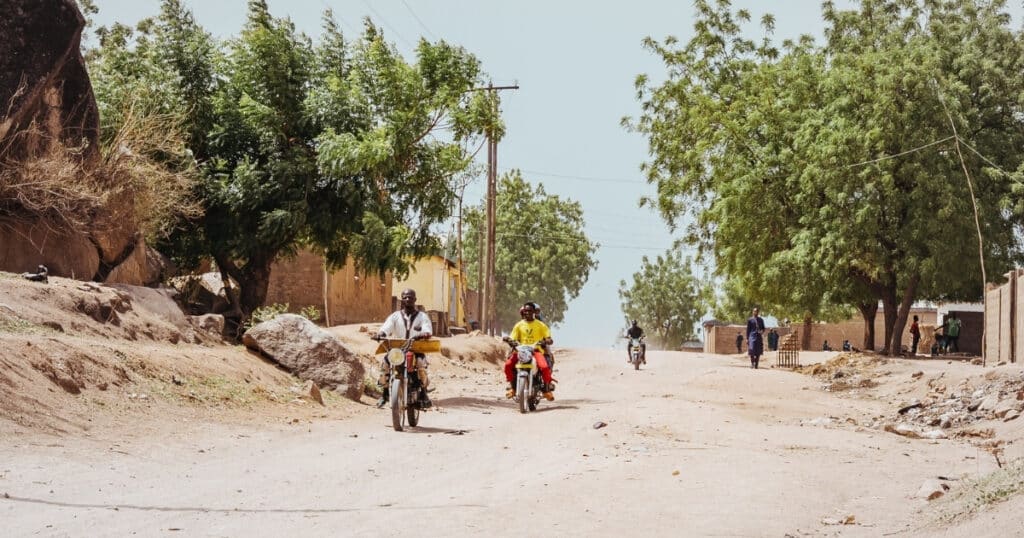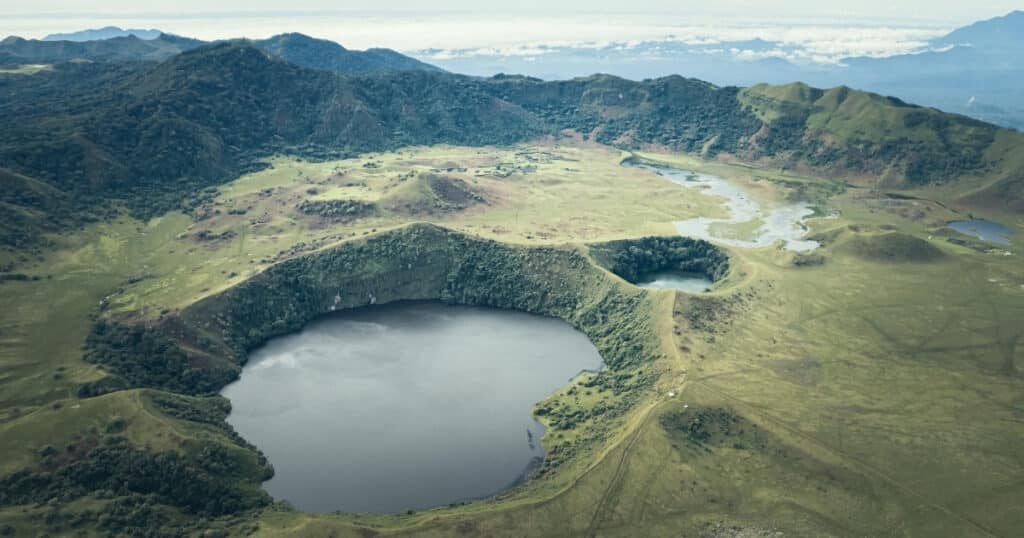
The Ekom-Nkam waterfalls
My trip began early in the morning in Douala, Cameroon’s bustling economic hub. I set out by car on the route toward Bafoussam, a drive known for its many potholes and unpredictable traffic. Although navigating this deteriorated road can be nerve-racking at times, there is a certain thrill in overcoming the challenges of the journey. It’s all part of the adventure that ultimately leads to one of Cameroon’s most iconic natural wonders: the Ekom-Nkam Waterfalls.
After several hours, I veered onto a soil track that cut through patches of dense jungle. This unpaved stretch is part of what makes visiting Ekom-Nkam so memorable. I passed small villages where life seemed intimately tied to the land: children playing by the roadside, women carrying baskets on their heads, and locals offering warm smiles to travelers. Even after multiple visits, this segment of the drive still feels like a step back in time, where lush greenery frames every turn.
Before entering the waterfall area, you must purchase a ticket at a small booth staffed by friendly locals. Over time, I’ve gotten to know the people here, sharing stories about Cameroon’s diverse traditions and exchanging perspectives on everything from local customs to environmental conservation.
Over the course of multiple trips, I’ve built a rapport with the ticket sellers and local villagers. These small yet meaningful encounters reinforce the idea that travel photography isn’t just about the final image. It’s also about forming bonds with the people who call these places home. It’s a reminder that travel is about more than just landscapes, it’s also about connections.
Ticket in hand, I followed a narrow path into the jungle. Almost immediately, I passed the famed ‘Tarzan tree’: a towering landmark featured in the 1984 film “Greystoke: The Legend of Tarzan, Lord of the Apes,” starring Christopher Lambert. It’s a delightful piece of cinematic history tucked away in this remote Cameroonian rainforest, and it always sparks my imagination.
As I continued along the trail, the roar of the waterfall grew steadily louder. The forest opened onto a small belvedere, offering the first dramatic sight of the falls. Even if you’ve been here many times, the spectacle never fails to captivate.
This particular visit was all about capturing an aerial photograph. From the belvedere, I carefully set up my drone, attaching propellers and double-checking the controls. Once airborne, the drone soared above the treetops, hovering in the perfect spot to frame Ekom-Nkam’s 80-meter cascade against the backdrop of the sprawling rainforest. I took several shots from different angles and altitudes, but one photo stood out above the rest. It showcased the sheer power and elegance of the water crashing into the gorge below, surrounded by seemingly endless layers of lush, green canopy.
Whether you visit during the rainy season, when the water’s flow is at its mightiest, or in the drier months, when the falls are slimmer but no less captivating, Ekom-Nkam always inspires awe. Each visit confronts you with the raw power of nature, urging you to appreciate the beauty in front of you and consider the environmental impact of our collective actions.
It wasn’t until I returned home and reviewed the images on my screen that the true majesty of Ekom-Nkam sank in. The immense scale of the rainforest, contrasted with the waterfall’s plunging drop, was a humbling reminder of how small we are compared to nature’s grandeur.
It also made me think about how vital it is to protect these ecosystems. Why do we, as humans, often take more than we need, risking the destruction of such irreplaceable wonders?



